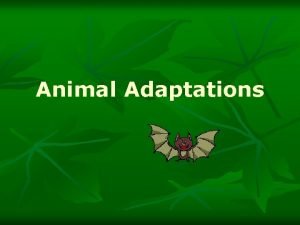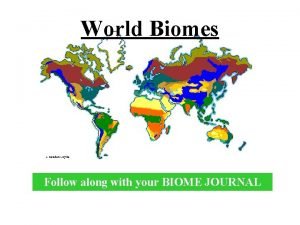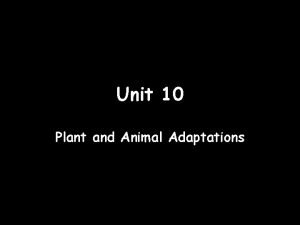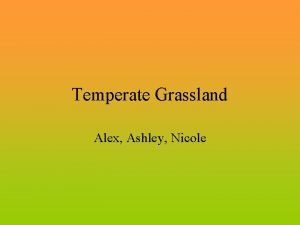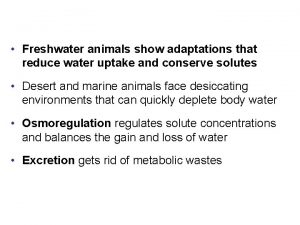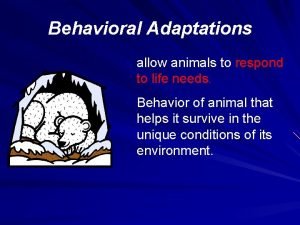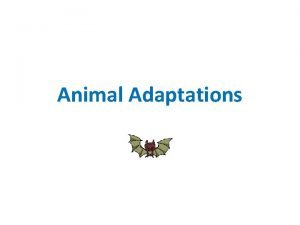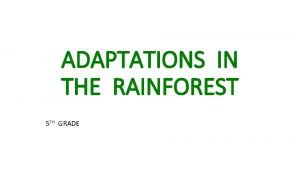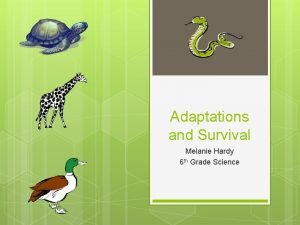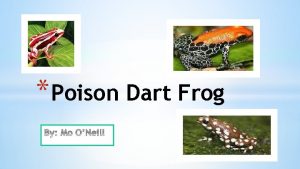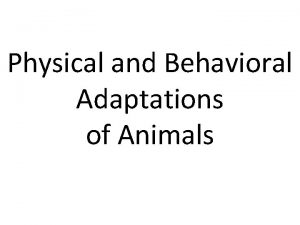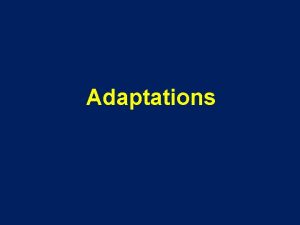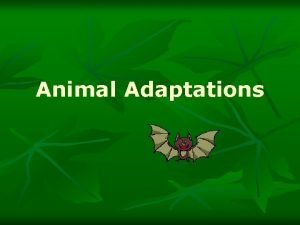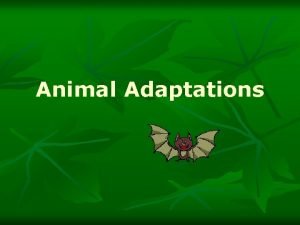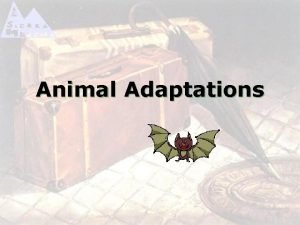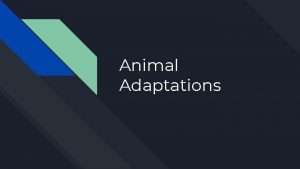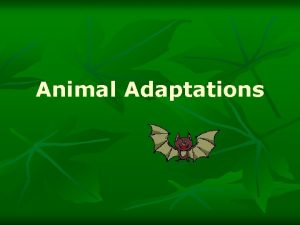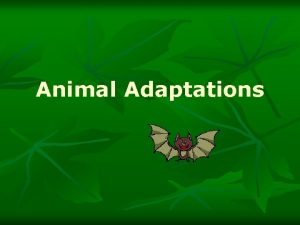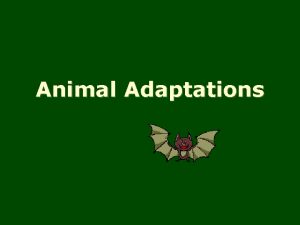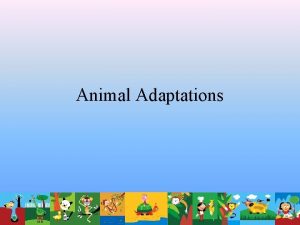Animal Adaptations Activity 1 Adaptation Notes Adaptations anything













- Slides: 13

Animal Adaptations

Activity 1: Adaptation Notes Adaptations = anything that helps an animal survive in their environment Structural = Structural Behavior = Behavioral Innate Learned

Types of Adaptation n Structural adaptation = a physical characteristic determined by genetics Protective coloration n Mimicry n n Behavioural adaptations = innate (instinctual) or learned Migration n Hibernation n

Structural adaptations n A structural adaptation involves some part of an animal's body. n n n Teeth Body coverings Movement

Protective Coloration n Coloration and protective resemblance allow an animal to blend into its environment. Another word for this might be camouflage. Their camouflage makes it hard for enemies to single out individuals. What would probably happen if we reversed the environment for these animals?

Mimicry n Mimicry allows one animal to look, sound, or act like another animal to fool predators into thinking it is poisonous or dangerous.

Behaviour adaptations n n Behaviour adaptations include activities that help an animal survive. Behaviour adaptations can be learned or innate. n n Social behaviour Behaviour for protection

Migration n This is a behavioural n Animals migrate for adaptation that different reasons. involves an animal or n better climate group of animals moving from one n better food region to another and n safe place to live then back again. n safe place to raise young n go back to the place they were born.

Hibernation n n This is deep sleep in which animal’s body temp drops, body activities are slowed to conserve energy. E. g. Bats, woodchucks & bears.

Schooling Fish n Behavioral adaptation n n Swim in same direction Coordinated patterns n n n http: //www. youtub e. com/watch? v=sy L 4 RAHCWsc Mullet Schooling as a dolphin hunts http: //www. youtub e. com/watch? v=Iu m. Vnppaob. A

Some more examples n Video Clip – n Adaptations in Action (Perth Australia Zoo) n http: //www. youtube. com/ watch? v=w. EDx. Th. DINg. Q&f eature=endscreen&NR=1 n Lab Journal: Create a list of the additional examples of adaptations you observe in the video How do these adaptations “fit” the environment?

Activity 3: Table Discussions 16. What happens if a species can’t adapt to changes in their environment? 17. How does genetic diversity help a species to adapt to changes in the environment? 18. How do the Laws of Genetics help a species survive within an environment? 19. What key structural adaptations do we have as a species? 20. Do we have mainly instinctive or learned behavioral adaptations? _____ n What would Mr. Mundt call this set of actions? ________ Hint: It begins with a “c. ”

 Animal adaptation notes
Animal adaptation notes Cara's kit adaptation notes
Cara's kit adaptation notes Abiotic factors in taiga
Abiotic factors in taiga Blue planet biomes savanna
Blue planet biomes savanna Rain
Rain Grassland
Grassland Freshwater animals & adaptations
Freshwater animals & adaptations Behavioral adaptations of mammals
Behavioral adaptations of mammals Adaptation example
Adaptation example Animal adaptations for rainforest
Animal adaptations for rainforest River animal adaptations
River animal adaptations Studyjams animal adaptations
Studyjams animal adaptations Poisonous dart frog adaptations
Poisonous dart frog adaptations Animal behavioral adaptations
Animal behavioral adaptations
